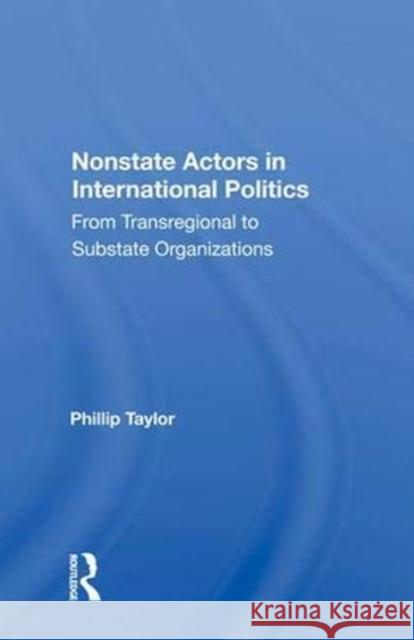Nonstate Actors in International Politics: From Transregional to Substate Organizations » książka
Nonstate Actors in International Politics: From Transregional to Substate Organizations
ISBN-13: 9780367019167 / Angielski / Twarda / 2019 / 268 str.
Nonstate Actors in International Politics: From Transregional to Substate Organizations
ISBN-13: 9780367019167 / Angielski / Twarda / 2019 / 268 str.
(netto: 676,35 VAT: 5%)
Najniższa cena z 30 dni: 654,86
ok. 22 dni roboczych.
Darmowa dostawa!
One of the most notable trends in the study of international relations is the resurgence of interest in international organizations, particularly those outside the United Nations. Regional international governmental organizations, multinational corporations, international labor unions, and transnational ethnic groups have become increasingly salient actors in world politics. OPEC, NATO, EEC, and PLO, for example, are all widely understood acronyms, and even a casual review of the crises in Iran and Afghanistan reveals the pervasive involvement of NATO, the European Community, the Islamic Conference, the International Olympic Committee, and more than one hundred other international governmental and nongovernmental organizations. Although international organizations are not likely to replace nation-states as the primary actors in world politics, their growing involvement in global political and economic issues challenges the assumptions of the traditionalists' state-centric model, as well as those whose interests begin and end with the United Nations. This book goes beyond the traditional UN-focused studies of nonstate actors to provide students with a comprehensive analytical survey of the many other organizations that help shape today's events. A common framework is used to examine what each nonstate actor does, how it organizes to achieve its ends, and how it makes multilateral/international decisions. The degree of integration in each nonstate actor is evaluated.











